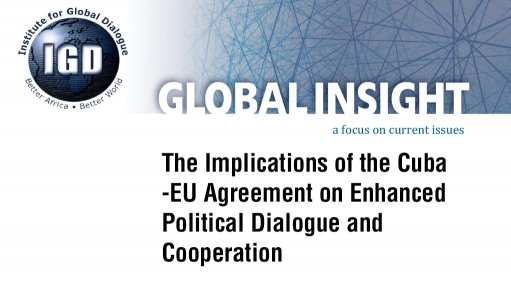
On Friday, 11 March 2016, the European Union and Cuba signed a historic agreement, the Political Dialogue and Cooperation Agreement (PDCA), to further improve relations that have grown slowly since the start of high-level dialogue between the two parties in 2008. This coincides with the growing rapprochement between Cuba and the US under Barack Obama, and suggests that something deeper than meets the eye is happening in Cuba's foreign relations.
While this might be seen as marking the beginning of the end of an important chapter of the Cold War global relations that remained frozen after the collapse of the Soviet Union. Relations between the West and Cuba represent a rescue of Cold War diplomacy and power relations. Whether the recent developments mark a break with this ideological quagmire and if the Cuba-EU agreement will overcome the deep-seated conditions that have frozen the relations up to this point are key questions to be debated as we discuss the future of Cuba in the world. Also crucial is to reflect on the implications of this for the Cuban model of governance and development.
Submitted by Institute for Global Dialogue